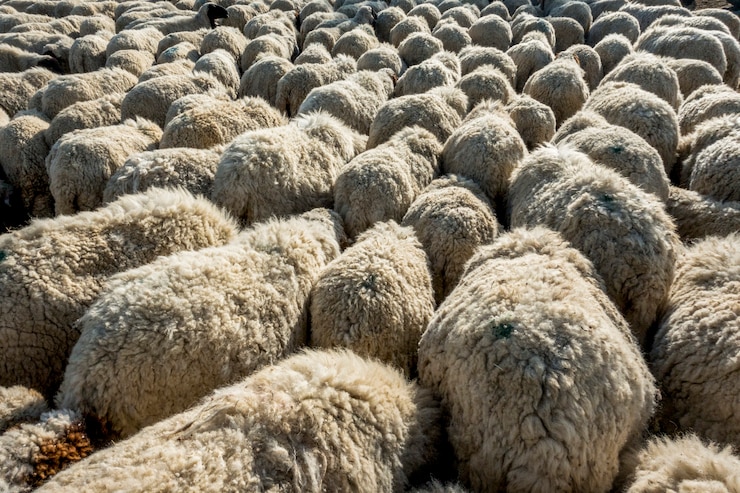South Africa has a thriving wool industry and is considered one of the leading countries in sheep farming and wool production. The country’s favorable climate, abundant grazing lands, and long-standing agricultural traditions contribute to its success in this sector. Let’s unravel South Africa’s wool industry by exploring key aspects such as sheep farming, wool production, and the country’s role in the global wool market.
Sheep Farming in South Africa: Sheep farming has a long history in South Africa and is an important agricultural activity in both commercial and subsistence sectors. Various sheep breeds are reared in the country, including Merino, Dohne Merino, South African Meat Merino (SAMM), and various dual-purpose breeds. Merino sheep, known for their high-quality wool, are the most common breed and play a significant role in South Africa’s wool industry.
Sheep farming in South Africa is practiced across different regions, with the Western Cape, Eastern Cape, Free State, and Northern Cape being the major sheep-producing provinces. The favorable climatic conditions in these areas, characterized by Mediterranean and semi-arid climates, provide ample grazing opportunities for sheep.
Wool Production Process: Wool production involves several stages, including breeding and selection, shearing, sorting, processing, and marketing. Here is a brief overview of each stage:
- Breeding and Selection: Sheep farmers in South Africa focus on breeding sheep with desirable traits such as high wool yield, good wool quality, and adaptability to local conditions. Selective breeding programs aim to improve the genetic potential of the sheep population.
- Shearing: Once a year, usually in spring, sheep are shorn to obtain their wool. Skilled shearers perform this task, ensuring the welfare of the animals and the quality of the wool.
- Sorting: After shearing, the wool is sorted based on various characteristics such as fiber diameter, length, color, and cleanliness. This process helps classify the wool into different grades and ensures consistency in quality.
- Processing: The sorted wool is then processed, which involves scouring (cleaning), carding (aligning the fibers), and spinning (creating yarn). Further processing may include dyeing, weaving, and knitting to produce various woolen products.
- Marketing: The final stage involves marketing and selling the processed wool or woolen products to domestic and international markets. South Africa exports a significant portion of its wool to global buyers.
South Africa’s Role in the Global Wool Market: South Africa is a major player in the global wool market, renowned for its high-quality Merino wool. The country’s wool industry contributes significantly to the national economy and rural development. Here are some key points regarding South Africa’s role:
- Wool Production: South Africa is consistently one of the top wool-producing countries worldwide. The Merino breed, specifically South African Merino, is highly regarded for its fine and soft wool, suitable for luxury apparel and textiles.
- International Trade: South Africa exports a substantial amount of wool, with its primary markets being China, Europe, and other wool-consuming nations. The wool industry plays a vital role in generating export revenue and creating employment opportunities.
- Sustainability and Ethical Practices: The South African wool industry has made efforts to adopt sustainable and ethical practices. Animal welfare, environmental stewardship, and responsible land management are important considerations for many sheep farmers and wool producers in the country.
- Wool Research and Development: South Africa invests in wool research and development to improve wool quality, fiber characteristics, and farming techniques. Research institutions, such as the South African Wool Research Institute, collaborate with farmers and industry stakeholders to drive innovation and ensure the industry’s long-term viability.
Join 'Farmers Mag' WhatsApp Channel
Get the latest Farming news and tips delivered straight to your WhatsApp
CLICK HERE TO JOIN






